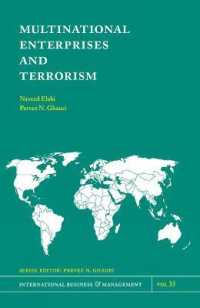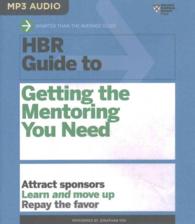- ホーム
- > 洋書
- > ドイツ書
- > Humanities, Arts & Music
- > History
Full Description
Criticized as parsimonious and cruel in the later 1800s, the Poor Law for Scotland was first passed in 1845 as a frankly humanitarian measure in response to desperate poverty on display in Paisley and elsewhere in the early 1840s. Poor Law Inspector James Shaw Brown of Paisley Burgh Parish, a compassionate, detail-oriented bureaucrat, was charged with alleviating suffering while limiting expense. In his four-decade career he served the poor, the parochial board, and rate payers of the parish, weaving their conflicting needs and demands though the arcane rules of the law. Inspector Brown and colleagues across the nation interpreted and debated the meaning of the law in correspondence and the courts for decades before it approached its final form. This book delves into Inspector Brown's life and records to reveal how poverty and the poor law shaped life experiences for tens of thousands of ordinary Scots in the middle years of the nineteenth century.
Contents
Contents: The Case of the Unemployed and Destitute Inhabitants: Managing Poverty in Paisley before the New Poor Law: 1834-42 - The Case of the Distant Legislature: How the New Poor Law Came to Paisley: 1842-6 - The Case of the Girl Who Lived on Her Clothes: How the People of Paisley Met the Poor Law - The Case of the Starving Men: Relieving the Able-bodied Unemployed: 1847-66 - The Case of the Widow's Settlement: The New Poor Law and Women's Agency: 1850-61 - The Case of the Crowded Asylum: A Contest for Local Control: 1858-1876.








